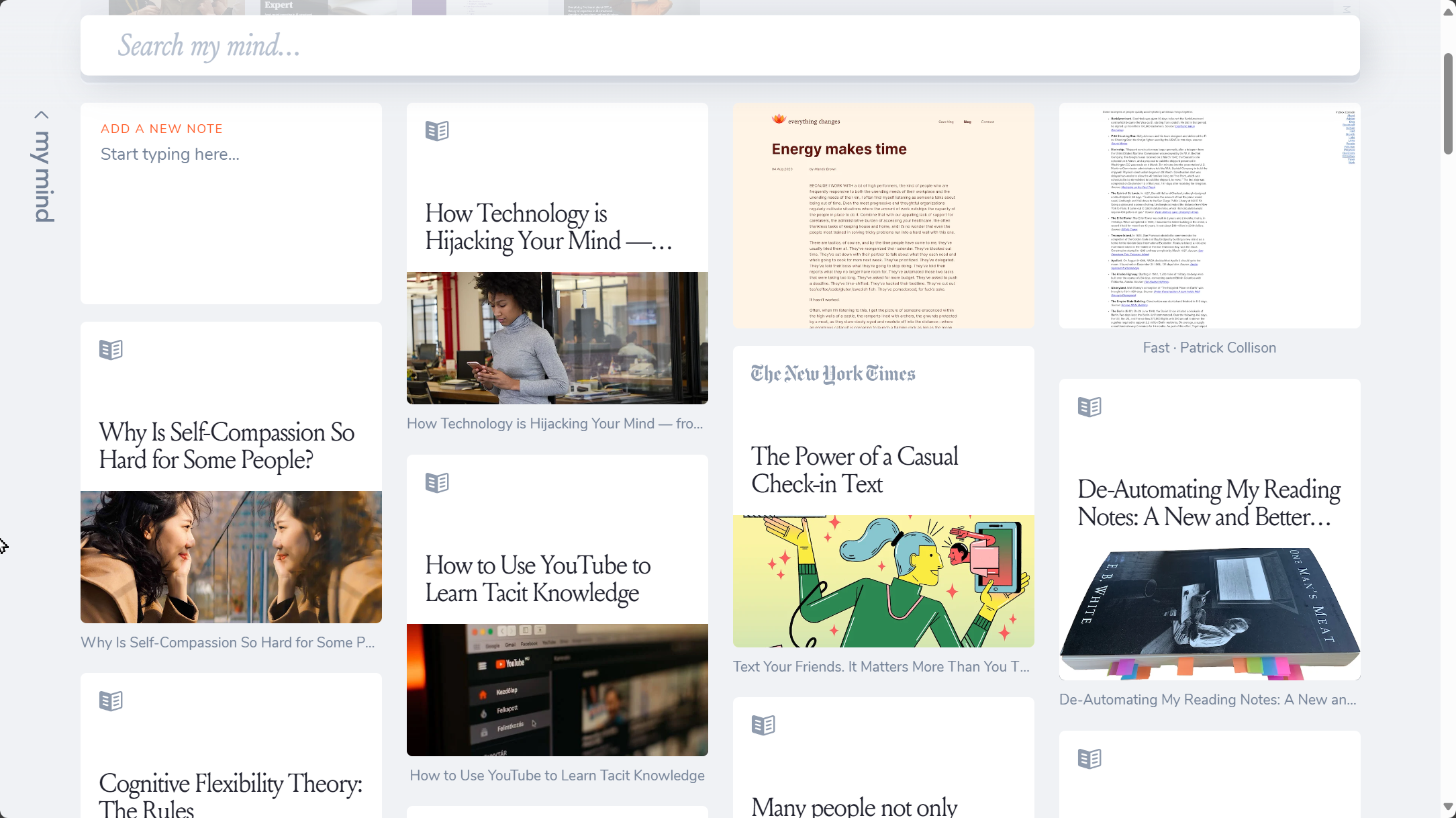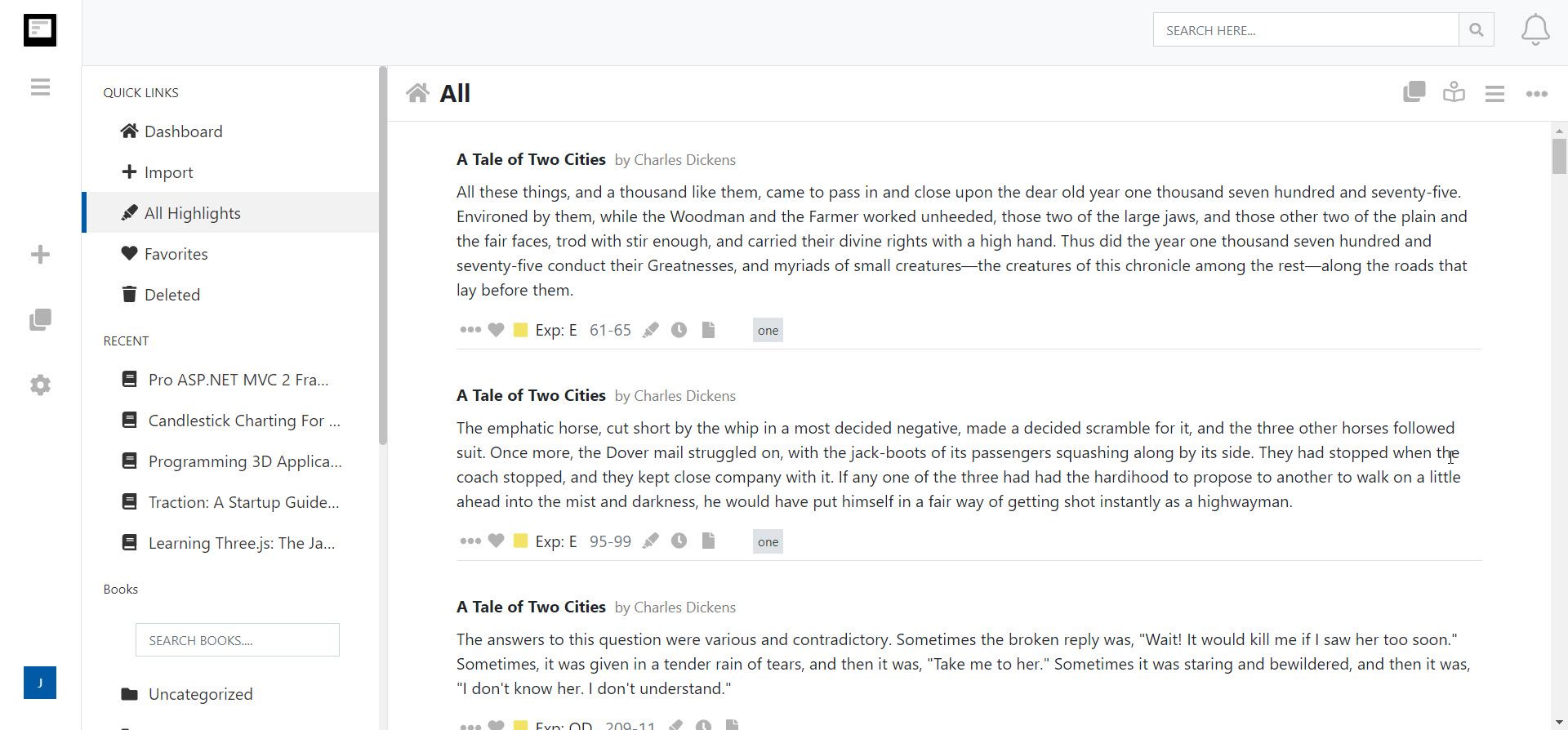Hoarding knowledge gives the illusion of knowledge
One good line put to use, is better than a thousand captured lines.
People are frequently inclined to acquire more books, videos, articles and more than they can ever consume. The possession of these things gives the user the illusion of having already learned, without learning anything. This illusion can be so convincing it can fool others as well as yourself. This illusion is known also as The Collector's Fallacy.
Knowledge hoarding can take many forms
What is most insidious about knowledge hoarding is that doing it feels productive. There are many examples:
Collecting bookmarks to interesting articles and videos gives you a growing pile of the "work" you did. In some apps, that pile might be beautifully styled or even have automatic AI summaries.

Acquiring, arranging and shelving books looks beautiful and impressive. The more books, the more impressive.

Highlighting/underlining of text in books gives us a pile of supposedly curated high-density information:

Digital tools such as Evernote web clipper allow the easy, instant saving of whole articles to an archive to live forever. This alleviates our fear of a web page disappearing.
And there are many more examples of hoarding information.
The illusion of knowledge is strong, until it isn't
One may feel that having all of the above puts you at an advantage. And to a small extent, it does. But in all of the above examples, even the mildest of tests of knowledge will result in failure.
This is embarrassing for all concerned.
- When someone sees your collection of books, inevitably you will be asked about them. You will be confronted with the embarrassing reality of not being able to answer.
- Saving a bookmark to an interesting article often eventually leads to hearing about the article discussed by others, as people often encounter newly published articles at around the same time. But having only saved a bookmark, you'll have nothing to discuss.
There are bad and good solutions to hoarding
If you have found you are acquiring more than you can consume, one might consider which action to take next. There are some bad options.
- One may be tempted to find a summary of the book written by someone else. This has the same problem of you not having read the work yourself, and the additional problem of now looking with the bias of the summariser.
- One may be tempted to skim or speed read. The point of reading through your hoarded knowledge is to gain new knowledge. Inevitably, reading new knowledge will result in you encountering something you do not understand. These cannot be speed read or skimmed.
- If it is an e-book, one may be tempted to skim it while highlighting important phrases. These collected highlights will become an unintelligible hoard of their own, and thus is also a bad idea.
These all fail because they do not address the underlying concern: for you to know a thing, new neurons must form in your brain that can produce knowledge. Forming these is a difficult process that requires directed effort.
A smooth sea never made a skilled sailor.
There are two general ways to form the knowledge producing neurons:
- Engage in dialog about the material.
- You can share your thoughts on social media for your friends to engage you.
- You can find comment sections or communities around the material and engage there.
- You can make an event out of this, such as a book club.
- You can email the author. This has the great advantage of expanding your network and producing vivid memories, as authors very frequently reply.
- Create your own material. The generation effect is a known phenomenon where information is better remembered when generated from your own mind, rather than only consumed from someone else.
- For simple forms of knowledge, you might want to create flash cards. This is well suited to simple information, such as translations of words.
- For everything else, you can begin by paraphrasing your understanding.
- If you do not understand the material, write down questions. If you do not understand enough to form questions, at least write down where you are getting stuck.
- When your understanding feels more formed, write your own notes and essays on the topic (particularly the Feynman Learning Technique),
- When you have any number of questions, notes or essays, if you are using a Linked note system, you should link your notes.
Other things that are like hoarded knowledge
A video game backlog is psychologically similar to hoarded knowledge, but having it generally does not give a gamer false confidence in what they know.
A doom pile is a pile of clutter, representing deferred work to get rid of it. This comes with feelings of guilt for not doing it, and anxiety at how hard it is to get rid of.
A task backlog similarly creates a "trauma-brag" amongst workers who talk about how much work they have to do. Simply having the backlog creates stress, anxiety and burnout, as a result of the Zeigarnik effect.
Information overload differs from information hoarding, in that overload can be caused by others as well as yourself. Information hoarding is purely self-inflicted.
Further reading, including people who disagree
Why Unread Books are more valuable by Maria Popova
The Collector's Fallacy by Christian Tzietze
Too Much to Know by Ann Blair